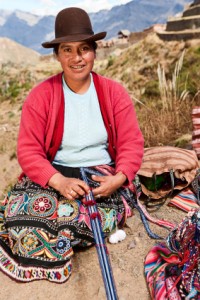A people must have dignity and identity.
Andrew Goodman
This weekend I read some really frightening statistics:
While they constitute approximately 5 per cent of the world’s population, indigenous peoples makeup 15 per cent of the world’s poor
- They also make up about one-third of the world’s 900 million extremely poor rural people
- In Canada about 70 per cent of First Nations students on reservations will never complete high school.
- In the US Native Americans and Alaska Natives have higher death rates than other Americans from tuberculosis (600 per cent higher), alcoholism (510 per cent higher), motor vehicle crashes (229 per cent higher), diabetes (189 per cent higher), and suicide (62 percent higher).
Umm..yeah, for reals.
Those numbers just kick you in the teeth. I know you guys are way smarter than I- So me, being me I started to do a little reading and I wanted to share with you all what I learned.
It is estimated that there are more than 370 million indigenous people spread across 90 countriesworldwide. The United Nations has pages and pages of documentation to help nations define and understand the term “indigenous”. The criteria can include people who have historical continuity with pre-colonial or pre-settler societies or a non-dominant group with a strong link to territories and surrounding natural resources.
Practicing unique traditions, these “first” people retain social, cultural, economic and political characteristics that are distinct from those of the dominant societies in which they live. Spread across the world from the Arctic to the South Pacific, they are the descendants of those who inhabited a country or a geographical region at the time when people of different cultures or ethnic origins arrived
Jump on boat, cross seas, see new land. Dominate.
We all know how the new arrivals later became dominant – that’s right through conquest, occupation, settlement or other horrifying means. That occupation has led to Native people losing their belief systems, cultures, languages and ways of life.
How would you feel if you lost your land, your language and your identity?
Even in developed countries, indigenous peoples consistently lag behind the non-indigenous population in terms of most indicators of well-being. They live shorter lives, have poorer health care and education and endure higher unemployment rates.Who thinks its ok for 70% of native students in Canada on the reservation not to graduate?
Land
Indigenous peoples are custodians of some of the most biologically diverse, amazing beautiful and resource rich territories in the world. Indigenous peoples’ traditional livelihoods are threatened not only by extractive industries like mining or huge development projects like dams , but also by efforts that are aimed at preserving and celebrating indigenous peoples’ cultures and the environment. In some cases, indigenous peoples have been forced off their lands for the establishment of natural parks. They are also responsible for a great deal of the world’s linguistic and cultural diversity, and their traditional knowledge has been and continues to be an invaluable resource that benefits all of mankind.
Language
Language is an important component of one’s identity. Now imagine that you canot learn the language spoken by your great- great grandfather because no one is around to speak it or teach it
Here is an intersting gem: About 97 per cent of the world’s population speaks 4 per cent of its languages, while only 3 per cent speaks 96 per cent of them. A great majority of these languages are spoken by indigenous peoples, and many (if not most) of them are in danger of becoming extinct.
Language is vital. It is fundamental to understanding values, beliefs, ideology and other of culture. It enables people to communicate. It determines participation, access to knowledge, and leadership.
Identity
Traditional knowledge tends to be collectively owned. That tends to make people jumpy? Shared knowledge? What is this craziness you speak of?
This knowledge is deeply embedded in community practices, institutions, relationships and rituals. Deeply embedded—down to the DNA. Transmission of this knowledge is critical. Traditional knowledge is directly linked to the concept of self-determination in the sense that native peoples have the right to manage their own heritage, knowledge, territories and resources. They have the right to maintain, control, protect and develop their cultural heritage, traditional knowledge and traditional cultural expressions.
THEY DO. No one else.
That sounds like POWER to me.

